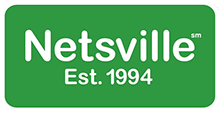Google announced recently at the Google Performance Summit some of the biggest changes to AdWords, well, since they launched AdWords. The changes will have some obvious, and some not so obvious, effects on large and small advertisers alike, with the most significant changes being:
- Expanded text ads, increasing their character limitations
- Adding Bidding levers for all devices
- Similar audience search
- Dynamic display ads on mobile
- GDN targeting expanding to other ad agencies
The new expanded text ads will increase the number of characters that will be displayed in SERP’s. Expanded text ads will be optimized for screen sizes and will provide advertisers with more ad space. Additional ad space should help with relevancy and conversions, allowing advertisers to provide more relevant information about their products and services.
The first change is to make headlines more prominent. Currently, ads are limited to one 25-character headline. Later this year, the headlines will display as two 30-character headlines. This gives advertisers greater visibility for their brand and more opportunity to get their message to buyers. Two 30-character headlines means that attention grabbing headlines will not have to be truncated and will have more relevance to the buyer.
The second change is to the description line. When the changes role out descriptions will go from two 35-character description lines to one 80-character string. This change is significant because it will allow advertisers to describe what they are selling with more detail so that searchers will be more inclined to click on the ads. Ads will be more relevant to keyword searches that are conducted because there will be ten extra characters to include. There is a better likelihood that keywords entered by the user will match keywords in the longer character string. Also, given that there will now be only one string, advertisers will be able to give a more descriptive (albeit short) narrative about the products they are selling.
Changing the character limits on AdWords places advertisers in a position to take the time to update their AdWords campaigns. They must modify the descriptions from two phrases to one descriptive phrase. If they don’t, it will not display properly in the results pages, especially on mobile devices, and will seem to be disjointed.
Google’s Mobile First Strategy & Multiple Devices
In early 2015, Google began favoring websites that were responsive to mobile devices and would slap your site down in rankings, if it were not mobile friendly.
Ads in the new format will look more aesthetically appealing compared to the older ads that do not read properly, which are displayed by advertisers that don’t switch over. – Media Post
Google is moving more and more to a mobile oriented genre. The right sidebar was removed from SERP’s in February 2016 because it was not conducive to mobile searches. The changes to the AdWords structure are strategies behind the “Mobile First” mindset. Companies are increasingly designing for mobile before reconfiguring for desktop and laptop computers.
Another significant change that will give advertisers more control over device-level bidding in AdWords. Google said it now handles trillions of searches globally — up from the hundreds of billions most recently stated — with more than half of those searches starting on mobile devices. Advertisers will be able to set individual bid adjustments for each device type, including mobile, desktop and tablet.
To clarify, device bidding will apply to all campaign types, even when keyword targeting isn’t used, such as in Shopping campaigns. What this means, is: Tablet bidding is back. Base bids can now apply to mobile with bid modifiers set for desktop and/or tablet.
Access to a Treasure Trove of User Data
There was very little information given but there was much excitement from the Google announcement that it is finally going to let advertisers tap its trove of user data for search targeting. Demographic and similar audience targeting for search was not included in Google’s official blog post on the updates and only mentioned briefly during the presentation. This could be a huge win for advertisers!
Benefits to First Movers
Advertisers who update their campaigns with a more descriptive narrative will have a competitive advantage over those who do not take the time to make updates.
“Advertisers that move quickly and adapt to the new format stand to benefit in two ways. First, advertisers that leverage the additional creative real estate can weave in new messages as they communicate to their customers that result in more clicks and purchases. Second, ads in the new format will look more aesthetically appealing compared to the older ads that do not read properly, which are displayed by advertisers that don’t switch over.” – Media Post
Making the adjustments to campaigns when Google is ready to launch the changes will lead to more significant search results which in turn will lead to more businesses placing ads through Google AdWords. Businesses who are prepared and ahead of the game by making adjustments to their campaigns will be ranked well and noticed more often resulting in more conversions.
There was great deal of information to make our way through from the Google Summit, other little nuggets. Be sure to watch us for more updates in the coming weeks!
Based in Rochester, New York, Netsville is an Internet Property Management company specializing in managing the Digital Marketing, Technical, and Business Solutions for our customers since 1994. For more information, please click here.






